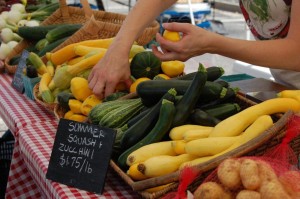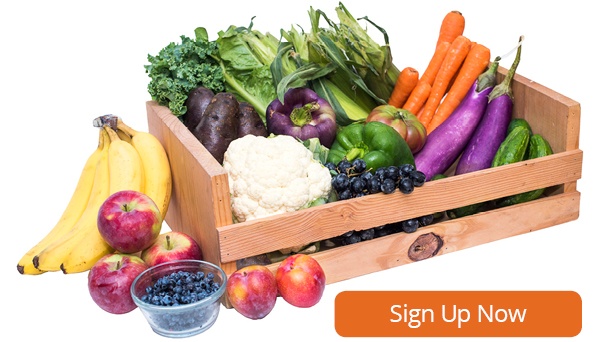One of the most anticipated gifts of summer has arrived. Summer farmers markets have popped up around Boston! There’s nothing quite like meeting the farmer who grew your food and being able to ask about where your produce came from and how it was grown.
Farmers markets offer the chance for shoppers to make the most informed decisions, and that starts with knowing where your food is coming from. In order to make the best choices for you, your family, and the environment, use the farmers market as an opportunity to educate yourself! Local foods can still have pesticides on them, so ask around and find out what the farmers are using on their crops. Most farmers are more than happy to tell you all about what they do and how they grow their produce.
In order to learn more about the foods at your local farmers markets, here are some questions we think are helpful to ask the farmers you meet.
Do you follow organic guidelines or other environmentally sustainable agricultural practices?
- If the farm is Certified Organic, then you can know with confidence that they are using strict guidelines that ensure your food is being produced in a safe and sustainable way. However, just because a farm isn’t Certified Organic, it doesn’t mean they don’t use sustainable agricultural methods. Without the certification, you may need to do a little more research to better understand what they are and are not doing. Farmers markets provide a great opportunity to find out directly from the grower what kinds of practices they use.
- To get a better sense of what all of it means for the farmer, the crops, the environment, and you, you may want to ask the farmers the following questions...
How do you fertilize?
There are many effective and safe ways to fertilize soil in sustainable ways. Find out the farmer’s methods and look into it yourself!
Do you use any synthetic pesticides or fungicides?
As a general rule, all synthetic chemicals are prohibited in organic agriculture. The presence of agricultural chemicals like pesticides in our food system is greater now than it ever has been, and the long term effects of exposure to these chemicals are, at best, not reliably known, and at worst, proven to cause harm to humans. Due to the sheer amount of these chemicals that are used all around us, we just can't escape them. We need to be particularly careful about what we expose our children to: even small concentrations of agricultural chemicals in growing bodies isn't good.
How do you manage pests and disease? Do you practice Integrated Pest Management?
Some farms practice techniques such as integrated pest management (IPM) in order to limit the amount of synthetic pesticides they release into the environment. Since this is not regulated and there are no standards, IPM can vary from farm to farm.
Do you use genetically modified seeds (GMOs)?
Genetically modified seeds are relatively new but are gaining widespread use. The long term health and environmental risks which GMOs pose have not yet been adequately investigated. Genetically modified seeds and foods are prohibited in Organic standards. Organic certification is one of the only safeguards against GMOs.
How do you decide which products to grow?
What crops are coming into season next? Are they growing on a schedule?
How has the weather impacted your crops this season?
What’s your favorite fruit or vegetable?
To learn more about the benefits of produce that's both local AND organic, check out this great article!
What questions do you like to ask your farmers at the farmers market? Let us know!



